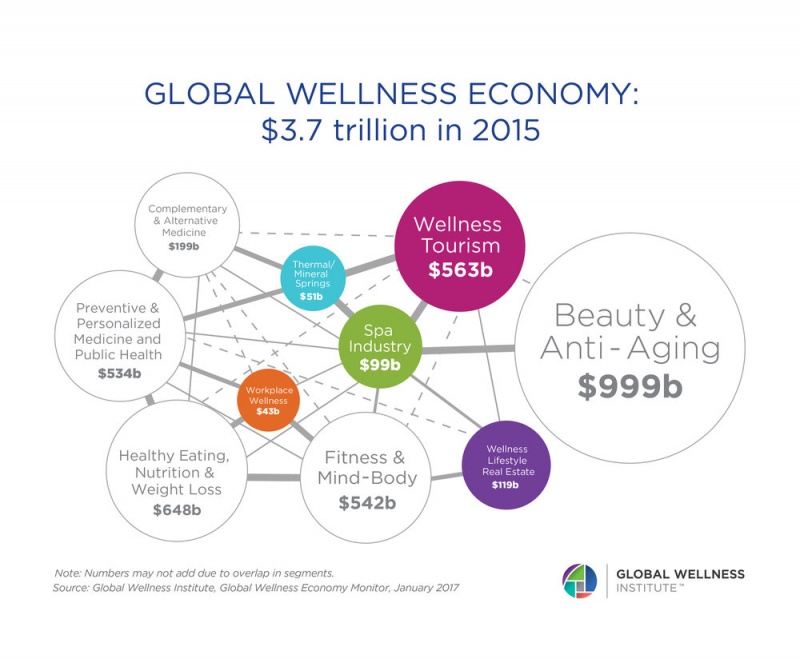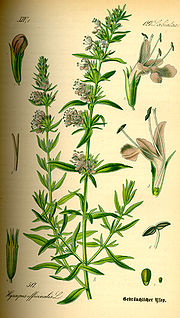Complementary medicine/CMT101/Growth, commodification & 'big business'
Commodification
As discussed in the lecture, values such as wellness, natural and holistic are now viewed as commodities which can be bought or sold. Complementary medicines are often viewed as being part of the wellness industry and wellness is big business. This diagram from the Global Wellness Institute provides some information about their definition of the wellness industry, and of the different aspects that it covers, from healthy eating, CAM and spas, to beauty and anti-ageing products and 'wellness lifestyle real estate'.
Complementary Medicines are Big Business
Complementary medicines are big business. Any trip to the supermarket or pharmacy will give you the chance to see this for yourself as you walk down long shopping aisles of products. Many of the products are now produced by multinational companies. Some brands such as Blackmores have themselves become large diverse companies. Blackmores was started by naturopath Maurice Blackmore in 1930, and was jointly owned by a group of naturopaths and the Blackmore family until it was publicly listed in 1985. Maurice's son Marcus remains very involved in the company. Other companies, also started by passionate advocates, have been bought out by global conglomerates. A recent example is Pukka Herbs, the popular UK herbal tea company which made its name based on ethical principles of ecological sustainability and fair trade, was recently bought by global giant Unilever, one of the biggest consumer product companies in the world. Closer to home, Swisse (originally Suisse) products started in small Melbourne bakery in the 1970s and in 2017 the company was sold to a Hong Kong company for almost $1.7b. Some other natural product brands are owned by pharmaceutical companies, for example Sanofi one of the world's largest pharmaceutical companies, owns Nature's Way, Bioorganic and Cenovis;Alticor the parent company of Amway (the multi-level marketing company), owns a controlling share of Metagenics.



